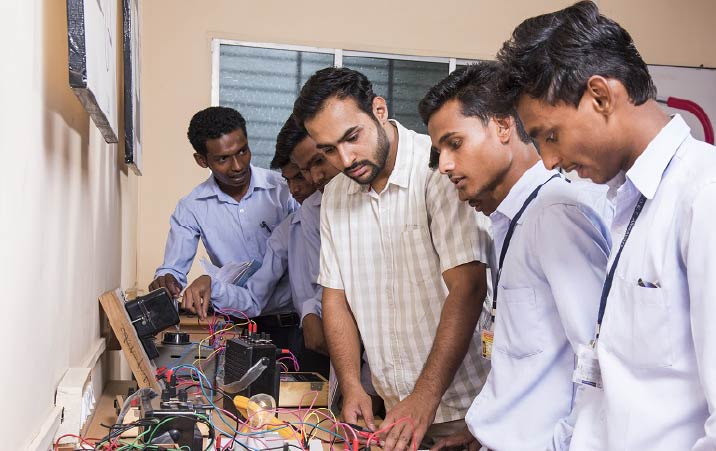AICTE is a regulatory body in technical education and covers all affiliated technical colleges and deemed-to-be-universities and not universities (state, public and private) and central universities, IITs, NITs, IISERs etc. The recent news items and articles mentioning mathematics and physics as not necessary for engineering education are misplaced and erroneous. Physics, chemistry and mathematics were mandatory for admissions in engineering till 2003 when chemistry was made optional with biotechnology, biology and computer science as alternatives and more subjects were added from time to time. In fact, when such a liberal and progressive attitude was taken, an additional course of prerequisite chemistry was, unfortunately, not made mandatory.
Hence, a Working Group under the chairmanship of K K Aggarwal was constituted on May 14, 2019, to relook at the entry-level subject criteria and include subjects other than physics, chemistry and mathematics for the entrance exams to undergraduate courses in engineering and technology. The scope of the committee was extended on March 25 with the following additional terms of reference: One, to specify the subjects mandatorily required for different categories of engineering studies and to suggest mandatory subjects at Class XII level for different groups. Two, to ascertain the level of preparation necessary in the mandatory subjects through testing in an entrance exam, if these are not formally taken in the board exam. Three, to complete these courses before starting engineering degree courses.
This year, there are 14 options provided in the Approval Process Handbook (APH). Out of 14 subjects at Class XI, XII, if a student has not done a certain subject which is essential for the study of a specific discipline of engineering, then the student shall be required to take the prerequisite additional course(s) either on a MOOC before joining the degree program or at least in the first year of engineering before proceeding to learn advanced courses in mathematics, physics, chemistry and biology. All engineering courses follow thereafter. Hence, there is neither dilution nor escape from doing enough mathematics, physics, chemistry and biology before graduating. AICTE has only opened opportunities, created a flexible model where a young bright student, because of less awareness or subjects of physics, chemistry, mathematics not being available in small towns and remote areas, is not left out. All such students shall have to go through an entrance process as decided by JEE or CET of the respective states and do these subjects in the very first year, even if it amounts to an extra year of study.
Class X plus three-year diploma students were being admitted directly in the second year with a lot of gaps in mathematics, physics and chemistry (their level being that of Class X mathematics and science with very little additional PCM during diploma) vis-à-vis those Class XI, XII science stream students with full two years (four semesters of PCM) and an additional two semesters of mathematics and physics and one semester of chemistry (in the first year of engineering) for over three decades. These supernumerary seats were even increased from 10 to 20 per cent. Unfortunately, bridge courses were not prescribed then. Many such passionate diploma students not only completed their degree in three years, some even topped the university. Thus, this flexibility helped them to choose the option of an engineering degree.
Another model followed by IITs for a long-time is the concept of a preparatory course for those from disadvantaged sections of society, who go through a year in an IIT and study PCM before formally entering the first year of engineering. Hence, several innovative approaches could be adopted by colleges and universities for fully preparing the students to understand the concepts, fundamentals and rigor of mathematics and physics before embarking on engineering subjects.
This exercise and openness will become all the more important when the 10+2 system is changed to the 5+3+3+4 system in school education, as per the NEP. In the last phase of four years, there is no distinction in terms of the arts, commerce or science stream. In that liberal framework, someone who could not decide the right combination of subjects as early as class VIII would have the doors of engineering closed to them. We also have multiple points of exit and entry, transfer of credits, academic bank of credits, in the NEP. Thus, a learner, a student should have enough avenues to study what he/she wants to study by learning all that is necessary for the award of a degree.
AICTE has not undermined the importance of mathematics, physics and even chemistry and biology. The bridge programs shall be as many as necessary.
Further, nowhere has AICTE mentioned that an entrance exam should not be held for mathematics, physics, chemistry. Every state has to decide which subjects they wish to have an entrance exam for, depending on which branch of engineering admission is sought. It is the same with the JEE. AICTE is not interfering in the autonomy of universities and they are free to decide. In fact, the new concept for admissions should be to test aptitude rather than subject knowledge.
COURTESY- INDIAN EXPRESS








